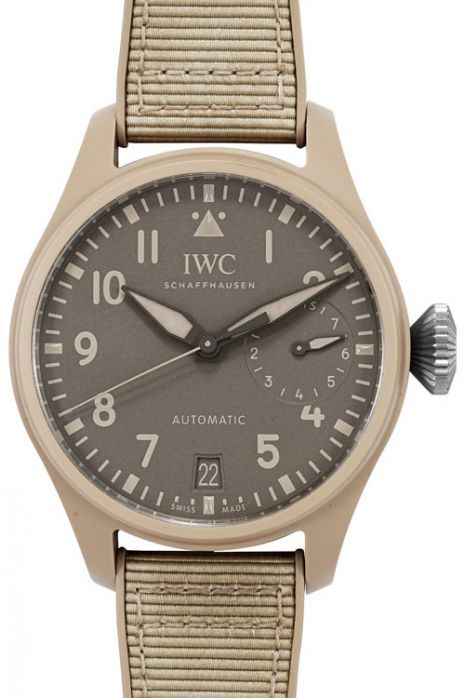
1 IWC Watch
How It All Started
When Florentine Ariosto Jones became a director at the now-defunct E. Howard & Co., little had he thought that one day he would be founding a company that would go on to become one of the world’s leading producers of luxury watches. But, that is exactly what he did. Founded by Mr. Jones in the year 1868, the International Watch Company (IWC) had the motto of achieving an exquisite amalgamation of American production techniques with the famed Swiss craftsmanship. Since then, the company has been a major innovator in the field of watchmaking. For a major part of the 20th century, the company was in the able hands of four generations within the Rauschenbach family. When Mr. Jones returned to the US, the wealthy Rauschenbach family acquired IWC in 1880. Interestingly, famed Swiss psychiatrist and psychoanalyst, Carl Gustav Jung, became one of the principal owners of the prospering company in 1905 through his wife Emma Rauschenbach. After a series of ownership changes in the latter part of the 20th century, the company has been under the ownership of the Richemont group since the 2000s.
Probus Scafusia - Craftsmanship Made In Schaffhausen
Away from the French-speaking areas of Switzerland known for their watchmaking culture, the IWC founder Florentine Ariosto Jones decided to centre the company in Schaffhausen. With the help of the hydroelectric power source of the Rhine River situated nearby, the company shifted to its new headquarters by the river bank. This, till date, remains the headquarters of the International Watch Company with their 650 employees.
Remaining true to their motto of ‘Craftsmanship made in Schaffhausen’, the watches made by the IWC goes through a process of rigorous testing and assembling. All the watches are handmade and are built with the help of a major part of the 650-odd workforce of the company. New designs are made keeping in mind the old-school crafting skills with the simultaneous integration of newer production techniques and technological innovations. The watches are then subject to three-dimensional computer simulations and X-ray-based material analyses. This provides the company with detailed data on how the watch behaves in extreme conditions, leaving room for improvement if required.
Each and every IWC watch is processed through several tests. These include corrosion tests, UV tests, abrasion tests which summarize to give data on the overall performance of the watch. Once, the assembled watch is deemed to have passed these tests and analyses, only then is it shipped to various parts of the world. However, IWC doesn’t stop their services with the shipping of the watch models. With over 200 certified technicians spread across the globe, IWC is at the beck and call of everyone who wears an IWC watch. Feedback from the watch owners is considered essential to the company development. Not surprisingly, the IWC has meticulously kept every detail of every watch that it has made since the year 1885!
Innovation & Sustenance Ahead Of Time
The IWC have adapted and made innovations that many experts consider to be groundbreaking. From the acclaimed rectangular watches with the tonneau-shaped 87 caliber to the world’s first titanium-cased watch, the company has pioneered changes in the watchmaking world!
There are primarily six famed watch families that the IWC produces: Pilot’s Watches, Portugieser, Da Vinci, Aquatimer, Portofino, and Ingenieur. The company also has collaboration collections with various sports teams like Tottenham Hotspurs and the Mercedes-AMG Petronas F1 team.
With the IWC being one of the few watch manufacturers to receive a high rating from the World Wide Fund For Nature (WWF), the company is active in its commitment to sustainable development and environmental protection. Taking such great strides in watchmaking, IWC has a great future ahead with their CEO Christoph Grainger-Herr promising to bring “the finest technology and unparalleled elegance to your wrist!”
